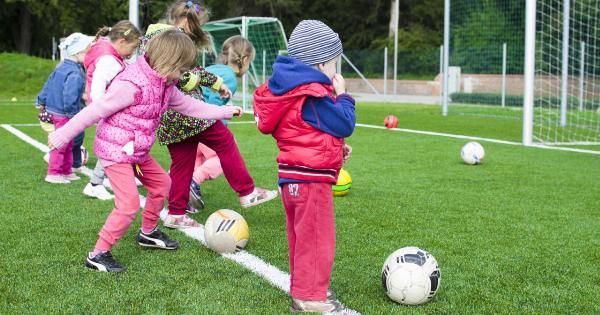Physical activity is essential for the healthy development of children. Engaging in sports not only promotes physical fitness but also instills important life skills such as teamwork, discipline, and perseverance.
However, the question arises whether children should be encouraged to participate heavily in sports. While there are valid arguments both in favor and against intense sports involvement, an objective evaluation of the benefits and potential drawbacks can guide parents and educators in making informed decisions for the well-being of children.
The Benefits of Heavy Sports Participation
1. Physical Health:.
Participating heavily in sports ensures regular exercise, which is crucial for maintaining a healthy weight and preventing various health issues, including obesity, cardiovascular diseases, and diabetes.
2. Motor Skills Development:.
Intense sports involvement aids in refining motor skills as children learn to coordinate their body movements, improve balance, and develop agility. These skills have a positive impact on overall physical development.
3. Social Interaction:.
Team sports provide an excellent opportunity for children to develop social skills by interacting with teammates, coaches, and opponents.
They learn valuable lessons in communication, cooperation, and sportsmanship, which are essential for their personal growth.
4. Character Building:.
Participating in sports requires discipline, commitment, and perseverance.
By setting goals, working hard, and facing challenges, children develop resilience, determination, and a strong work ethic that can positively influence their academic and professional pursuits in the future.
5. Emotional Well-being:.
Sports involvement contributes to the overall emotional well-being of children. Regular physical activity releases endorphins, promoting feelings of happiness and reducing stress.
Additionally, being part of a team can boost self-esteem and provide a sense of belonging.
The Potential Drawbacks of Heavy Sports Participation
1. Overuse Injuries:.
Participating heavily in sports without adequate rest and recovery can lead to overuse injuries, such as stress fractures, tendonitis, and muscle strains.
Continuous physical strain may hinder the growth and development of children, creating long-term health complications.
2. Burnout and Stress:.
Excessive sports involvement can put immense pressure on children, leading to burnout and elevated stress levels.
Juggling academics, training, and competitions may result in physical and mental fatigue, negatively impacting their overall well-being and performance.
3. Limited Time for Other Activities:.
Heavy sports participation often demands a significant time commitment, leaving little room for other extracurricular activities, hobbies, or academic pursuits.
This imbalance may restrict children from exploring diverse interests and finding a healthy life balance.
4. Academic Concerns:.
Intensive sports involvement may potentially interfere with a child’s academic performance.
The time, energy, and mental focus required for sports activities could detract from studying and completing school assignments, affecting their overall educational progress.
5. Lack of Versatility:.
Participating solely in one sport from an early age may limit a child’s exposure to different types of physical activities.
Exploring various sports helps in developing a well-rounded skill set and allows children to discover their true passion and potential.
Conclusion: A Balanced Approach
While both the benefits and drawbacks of heavy sports participation should be considered, it is crucial to adopt a balanced approach.
Encouraging children to participate actively in sports while also ensuring they have time for other interests is essential. Parents and educators should prioritize the well-being of children by monitoring their physical and mental health, promoting open communication, and encouraging a diverse range of activities for holistic development.
<strong Discover the pros and cons of encouraging children to participate heavily in sports.
Learn about the physical, social, and emotional benefits, as well as potential drawbacks, to make informed decisions for your child’s well-being.






























